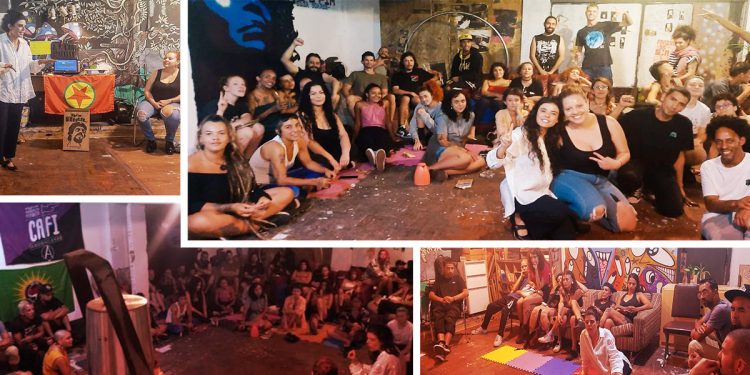SÃO PAULO – On the evening of January 12, dozens of people gathered at the Centro de Cultura Ouvidor 63 in São Paulo, the largest cultural occupation in Latin America. The space near Vale do Anhangabaú houses about 100 residents, including Brazilians from Pará, Rio de Janeiro, Bahia and countries like Venezuela, Colombia and Ecuador.
Following the molds of other city occupations, such as Tacheles, in Berlin, and 59 Rivoli, in Paris, the 63rd works as a cultural incubator. While strengthening the exchange of knowledge among multidisciplinary artists and enabling them to have space and housing to develop their work, it promotes workshops in dance, street art, plastic arts, music, circus, performance, and the 63 Bazaar every week.
The meeting aimed to discuss the theme of the Rojava Revolution and the importance of the women’s movement in the revolutionary struggle in Kurdistan and its similarities with the local struggles of Brazilian women, as well as to discuss which experiences and themes can be addressed with a look and practice closer to that experienced by the Kurdistan women’s movement.
Organized by CAFI – Coletiva Anarcofeminista Insubmissas and the Sister Dorothy Internationalist Brigade, comrade Rojda Dandara, who was present in Rojava for months working with the young women’s movement and the cultural movement.
On the 7th of this month the first encounter was realized on the Center for Social Culture in São Paulo – an anarchist collective, founded in 1933 in the city with the objective of being an environment for studies and debates, to discuss the theme of the Rojava Revolution and the importance of the women’s movement.




